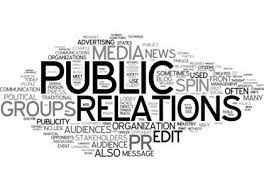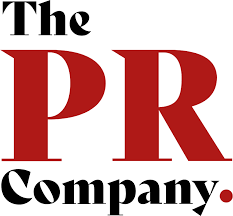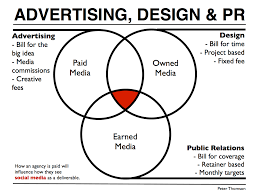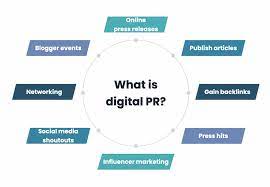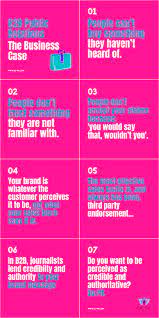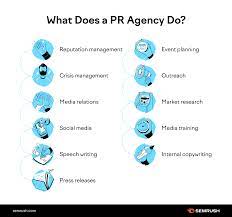Title: The Power of a PR Agency in Building and Enhancing Your Brand
Introduction:
In today’s highly competitive business landscape, establishing a strong brand presence is crucial for success. A well-executed public relations (PR) strategy can make all the difference in effectively communicating your brand’s story, values, and offerings to your target audience. This is where a reputable PR agency comes into play. In this article, we will explore the power of a PR agency and how it can help build and enhance your brand.
Building Credibility and Trust:
A PR agency acts as a bridge between your brand and the public. By leveraging their expertise in strategic communication, they can help shape your brand’s image and build credibility. Through media relations, press releases, and thought leadership opportunities, a PR agency can secure positive coverage for your brand in relevant publications. This exposure not only enhances your brand’s visibility but also builds trust among potential customers.
Crafting Compelling Stories:
Storytelling lies at the heart of effective PR campaigns. A skilled PR agency knows how to identify the unique aspects of your brand that resonate with your target audience. They craft compelling narratives that captivate readers and leave a lasting impression. By highlighting your brand’s values, mission, and achievements through engaging storytelling, they create an emotional connection with consumers, fostering loyalty and advocacy.
Navigating Crisis Communication:
No business is immune to crises or negative publicity. However, how you handle such situations can significantly impact your reputation. A PR agency plays a crucial role in crisis management by providing timely guidance and support during challenging times. They help you respond effectively to crises, ensuring transparency and maintaining trust with stakeholders.
Access to Media Networks:
Establishing relationships with journalists and media outlets takes time and effort. A reputable PR agency has an extensive network of media contacts built over years of experience in the industry. This network allows them to pitch newsworthy stories about your brand directly to relevant journalists, increasing the chances of securing media coverage. Through media relations, a PR agency can amplify your brand’s reach and influence.
Monitoring and Analysis:
Measuring the success of PR efforts is essential for refining strategies and achieving long-term goals. A PR agency employs various tools and techniques to monitor media coverage, social media engagement, and brand sentiment. By analyzing data and insights, they provide valuable feedback on the effectiveness of your PR campaigns. This data-driven approach allows you to make informed decisions and optimize future communication strategies.
Conclusion:
In today’s fast-paced business world, partnering with a PR agency can be a game-changer for your brand. Their expertise in strategic communication, media relations, storytelling, crisis management, and data analysis can help build credibility, enhance brand visibility, and foster trust among your target audience. By harnessing the power of a PR agency, you can unlock the full potential of your brand in an increasingly competitive marketplace.
5 Essential Tips for Choosing a PR Agency in the UK
- Research potential PR agencies thoroughly – ensure they have the right experience and expertise to meet your needs.
- Be clear about your goals and objectives, so that you can find an agency that is best suited to help you achieve them.
- Ask for references from previous clients, so that you can get a better understanding of the agency’s capabilities and track record.
- Make sure there is good communication between yourself and the agency – it’s important that both parties understand each other’s expectations of the work being undertaken.
- Set clear timelines for deliverables – this will help ensure that deadlines are met and results achieved in a timely manner.
Research potential PR agencies thoroughly – ensure they have the right experience and expertise to meet your needs.
When it comes to choosing a PR agency to represent your brand, thorough research is key. It’s essential to ensure that the agency you select has the right experience and expertise to meet your specific needs and goals. Here’s why conducting comprehensive research is crucial in finding the perfect PR agency for your business.
Firstly, examining an agency’s track record allows you to gauge their level of experience. Look into their previous clients and the industries they have worked with. This will give you an idea of whether they have relevant experience in your field. A PR agency that has successfully handled similar brands or projects in the past will likely understand the nuances of your industry and be better equipped to deliver results.
Secondly, consider their areas of expertise. Public relations encompasses various aspects such as media relations, crisis management, event planning, content creation, and digital communication. Depending on your specific needs, you’ll want to find an agency that specializes in the areas most relevant to your goals. For example, if you’re looking to generate media coverage, a PR agency with strong media relations capabilities would be ideal.
Additionally, take the time to review case studies or testimonials from previous clients. This will provide insights into how well the agency has performed for others and what results they have achieved. Look for success stories that align with what you hope to accomplish for your brand.
Furthermore, consider the agency’s approach and values. Do they align with yours? Building a successful partnership requires shared values and a collaborative mindset. A PR agency that understands and embraces your brand’s vision will be more effective in delivering tailored strategies that resonate with your target audience.
Lastly, don’t hesitate to ask for references or speak directly with current or former clients of the PR agencies under consideration. Hearing firsthand about their experiences working with a particular agency can provide valuable insights into their strengths, weaknesses, and overall satisfaction.
In conclusion, researching potential PR agencies thoroughly is essential before making a decision. By examining their experience, expertise, track record, client testimonials, and approach, you can ensure that the agency you choose is well-suited to meet your specific communication needs. This diligent research will lay the foundation for a successful partnership and help you achieve your brand’s PR objectives effectively.
Be clear about your goals and objectives, so that you can find an agency that is best suited to help you achieve them.
When it comes to selecting a PR agency, one crucial tip stands out above the rest: be clear about your goals and objectives. By having a clear understanding of what you want to achieve through PR, you can find an agency that is best suited to help you reach those goals.
First and foremost, take the time to define your objectives. Are you looking to increase brand awareness, launch a new product, or manage a crisis? Each goal requires different strategies and expertise. By pinpointing your specific objectives, you can narrow down your search for an agency that specializes in those areas.
Once you have a clear vision of your goals, it’s time to find an agency that aligns with your needs. Look for agencies with a proven track record in achieving similar objectives for their clients. Research their case studies and client testimonials to gain insights into their capabilities and success stories.
Additionally, consider the agency’s industry expertise. Some PR agencies specialize in specific sectors such as technology, healthcare, or fashion. Finding an agency with experience in your industry can provide valuable insights and connections that will strengthen your PR efforts.
Communication is key when working with a PR agency. During the selection process, ensure that the agency understands your goals and has a clear plan on how they will help you achieve them. Ask for detailed proposals outlining strategies, tactics, timelines, and expected outcomes.
Transparency is equally important. Discuss budget expectations upfront and make sure the agency provides a breakdown of costs involved in executing their proposed strategies. This will help avoid any surprises down the line and ensure both parties are on the same page from the start.
Lastly, trust your instincts. Chemistry between you and the agency is vital for a successful partnership. Arrange meetings or calls with potential agencies to gauge their enthusiasm for your project and see if they understand your vision.
Remember, selecting a PR agency is not just about finding any agency but finding the right one that can effectively support your goals. By being clear about your objectives and finding an agency that specializes in those areas, you are setting yourself up for a productive and successful partnership.
Ask for references from previous clients, so that you can get a better understanding of the agency’s capabilities and track record.
Title: The Importance of Requesting References from Previous Clients When Choosing a PR Agency
Introduction:
When selecting a PR agency to handle your brand’s communication needs, it is essential to make an informed decision. One valuable tip in this process is to ask for references from previous clients. By doing so, you gain insights into the agency’s capabilities, track record, and the level of satisfaction experienced by their past clients. In this article, we will explore the significance of requesting references when choosing a PR agency.
Understanding the Agency’s Capabilities:
Requesting references allows you to gain a deeper understanding of the PR agency’s capabilities. By speaking with previous clients, you can learn about their experiences working with the agency and how effectively they were able to achieve their communication goals. References provide valuable firsthand information on the agency’s expertise in various areas such as media relations, crisis management, content creation, and strategic planning. This insight helps you assess whether the agency aligns with your specific needs and objectives.
Assessing Track Record and Success Stories:
References from previous clients offer an opportunity to evaluate the PR agency’s track record. You can inquire about their past campaigns and successes achieved for similar businesses or industries. Understanding how well they have delivered results in the past gives you confidence in their ability to handle your brand effectively. Additionally, hearing success stories from previous clients provides reassurance that the agency has a proven track record of delivering impactful PR strategies.
Gaining Insights into Client Satisfaction:
Client satisfaction is a crucial aspect when choosing a PR agency. By speaking directly with previous clients as references, you can gauge their level of satisfaction with the agency’s services. Ask about their overall experience working with the team, communication effectiveness, responsiveness, and professionalism. This feedback helps you determine if the PR agency will be a reliable partner who understands your goals and values your business relationship.
Validating Reputation and Trustworthiness:
Requesting references serves as a means to validate the reputation and trustworthiness of a PR agency. Positive references from previous clients provide evidence of the agency’s credibility and reliability. Conversely, if references raise concerns or highlight areas of improvement, it allows you to make an informed decision about whether the agency is the right fit for your brand.
Conclusion:
Asking for references from previous clients is a valuable tip when choosing a PR agency. It provides you with a better understanding of the agency’s capabilities, track record, and client satisfaction levels. By gaining insights into their past successes and experiences, you can make an informed decision about partnering with a PR agency that aligns with your brand’s communication needs. Remember, thorough research and due diligence are key to finding the right PR agency that will effectively elevate your brand’s reputation in the ever-evolving world of communication.
Make sure there is good communication between yourself and the agency – it’s important that both parties understand each other’s expectations of the work being undertaken.
Effective Communication: The Key to Success in PR Agency Partnerships
When it comes to working with a PR agency, one of the most crucial factors for a successful collaboration is good communication. Establishing and maintaining clear lines of communication between yourself and the agency is essential to ensure that both parties understand each other’s expectations and goals for the work being undertaken.
By fostering open and transparent communication, you can set the foundation for a strong working relationship with your PR agency. Here are some reasons why effective communication is vital:
Alignment of Expectations:
Clear communication allows both you and the agency to align your expectations from the outset. By discussing your goals, objectives, and desired outcomes, you can ensure that everyone is on the same page. This alignment helps the agency tailor their strategies and tactics specifically to meet your needs, maximizing the effectiveness of their efforts.
Efficient Workflow:
When there is good communication between yourself and the agency, it streamlines the workflow. Regular updates, progress reports, and feedback sessions enable both parties to stay informed about project milestones, deadlines, and any necessary adjustments along the way. This ensures that work progresses smoothly without unnecessary delays or misunderstandings.
Collaboration and Idea Exchange:
A strong partnership with a PR agency thrives on collaboration and idea exchange. By fostering open lines of communication, you create an environment where ideas can be freely shared and discussed. This allows for creative brainstorming sessions where both you and the agency can contribute insights, perspectives, and innovative strategies to achieve your communication goals.
Adaptability:
In any business relationship, circumstances may change or unexpected challenges may arise. Effective communication enables quick adaptability when needed. By keeping each other informed about any shifts in priorities or market conditions, you can work together to adjust strategies accordingly. This flexibility helps maintain agility in responding to evolving situations while staying focused on achieving desired outcomes.
Feedback Loop:
Communication should be a two-way street. Regularly providing feedback to your PR agency is crucial for their continuous improvement and refinement of their work. Similarly, the agency should also offer feedback to you, sharing insights on campaign performance, media coverage, and other relevant metrics. This feedback loop strengthens the partnership and allows for ongoing improvements in strategy and execution.
In conclusion, establishing good communication between yourself and your PR agency is paramount to a successful working relationship. It ensures that both parties understand each other’s expectations, facilitates efficient workflow, encourages collaboration and idea exchange, supports adaptability in changing circumstances, and fosters a valuable feedback loop. By prioritizing effective communication, you can maximize the impact of your PR efforts and achieve your desired outcomes.
Set clear timelines for deliverables – this will help ensure that deadlines are met and results achieved in a timely manner.
Setting Clear Timelines: Ensuring Effective Results and Timely Deliverables in PR Agency Partnerships
In the fast-paced world of public relations, time is of the essence. Setting clear timelines for deliverables is a crucial tip that can greatly benefit both clients and PR agencies. By establishing specific deadlines, everyone involved can work towards achieving desired results in a timely manner.
Firstly, clear timelines provide structure and direction to the PR agency’s workflow. When objectives are clearly defined with associated deadlines, it becomes easier for the agency to plan their strategies and allocate resources efficiently. This ensures that tasks are executed promptly, reducing any potential delays or bottlenecks.
Moreover, setting realistic timelines helps manage client expectations. Clients often have specific goals or events they want to align their PR efforts with, such as product launches or industry conferences. By establishing clear timelines from the outset, both parties can agree on achievable milestones and work towards them collaboratively. This facilitates effective communication and avoids any misunderstandings regarding project timelines.
Clear timelines also foster accountability and responsibility within the PR agency team. When there are concrete deadlines in place, team members have a sense of urgency and are more likely to prioritize tasks accordingly. This helps maintain focus and ensures that all efforts are directed towards meeting the established deliverables on time.
Furthermore, setting clear timelines allows for better project management. It enables regular progress tracking against key milestones, ensuring that projects stay on course and any deviations can be addressed promptly. This proactive approach minimizes last-minute rushes or compromises in quality due to time constraints.
Lastly, adhering to set timelines enhances overall client satisfaction. Delivering results within agreed-upon deadlines demonstrates professionalism, reliability, and respect for clients’ time constraints. It builds trust between the PR agency and its clients by showcasing their ability to meet commitments effectively.
In conclusion, setting clear timelines for deliverables is a valuable tip when partnering with a PR agency. It promotes efficient workflow management, manages client expectations, fosters accountability within the agency team, facilitates project tracking, and enhances client satisfaction. By establishing specific deadlines, both clients and PR agencies can work collaboratively towards achieving desired results in a timely manner.



